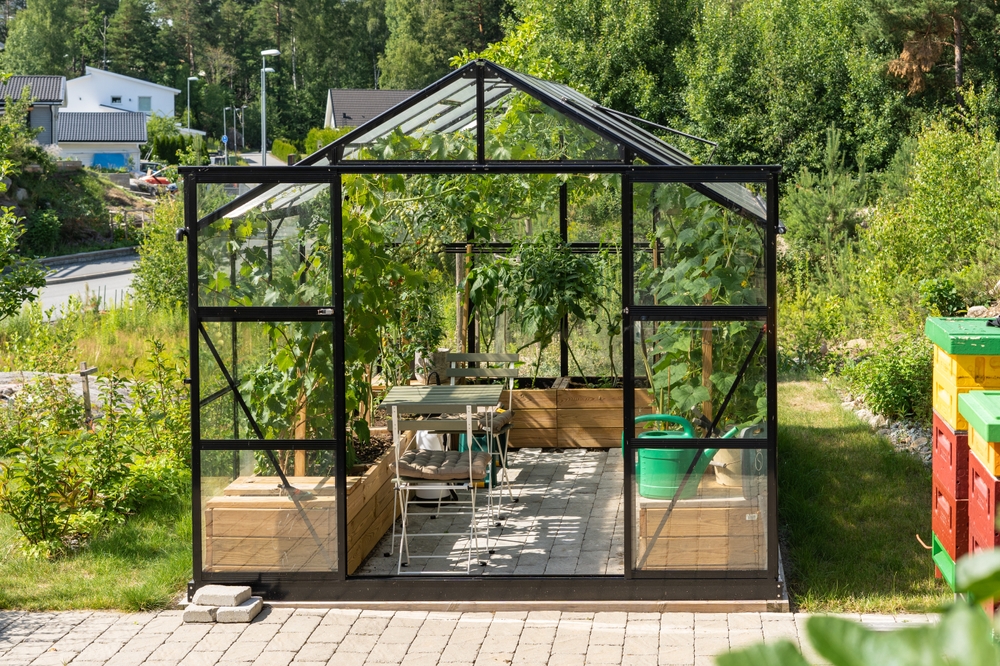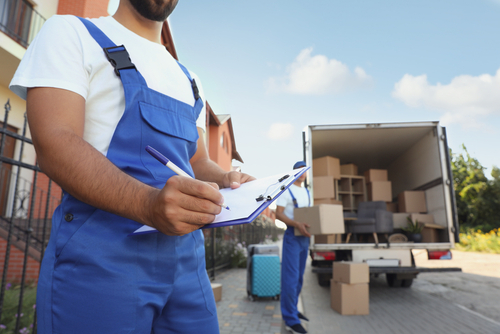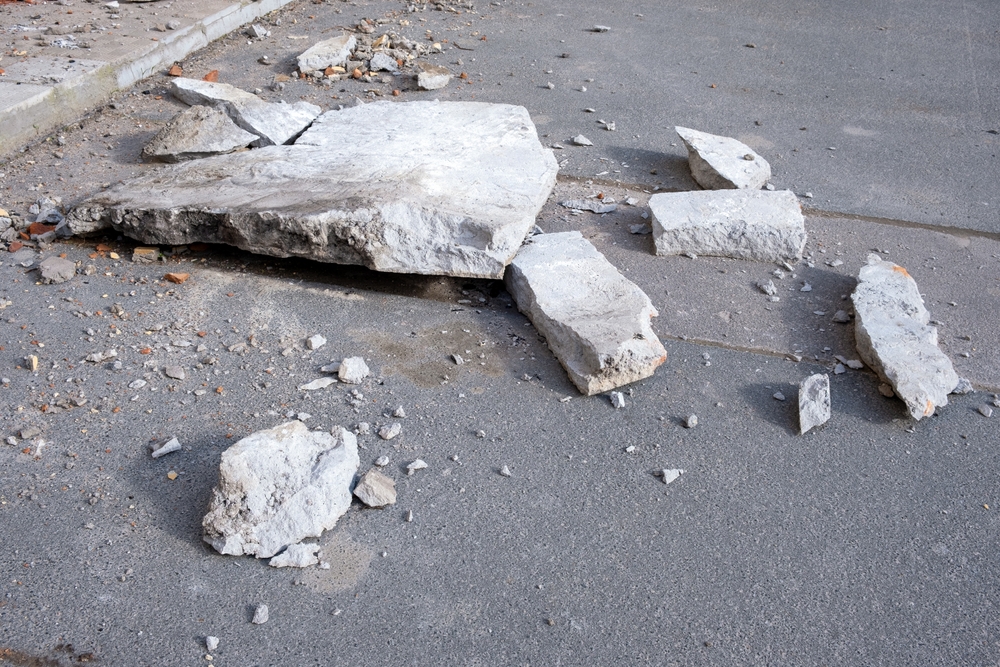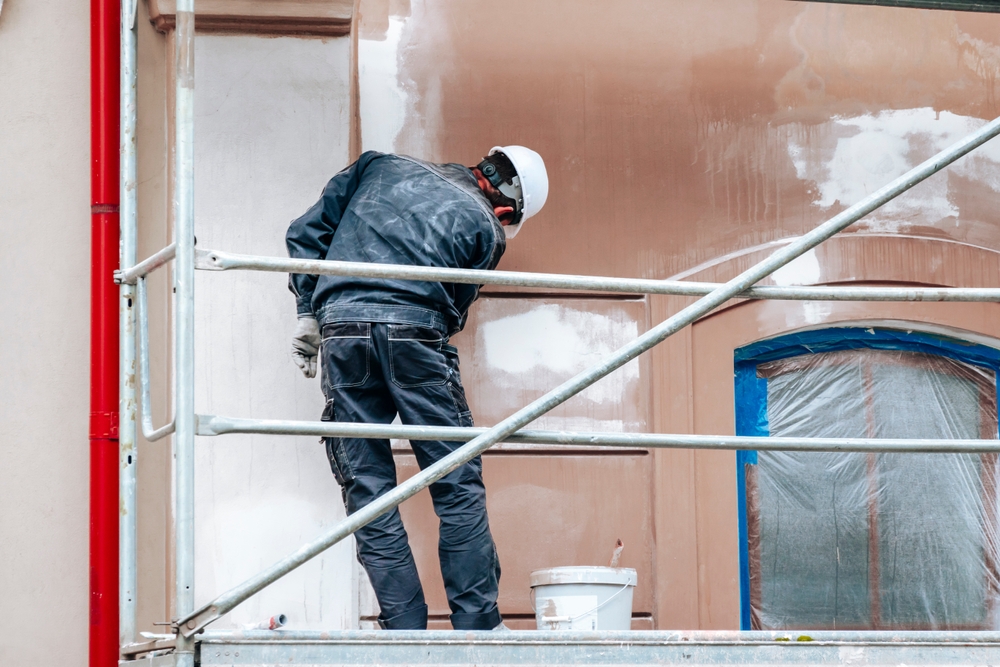April 4, 2024 - Benjamin Ehinger
Moving to Another Country: Essential Tips for a Smooth Transition
CALL NOW 844-762-8449
Moving to another country presents an exhilarating prospect filled with opportunities and adventures. It’s a significant life decision that requires meticulous planning and preparation. From the moment you decide to relocate, your journey will involve a series of steps to ensure a smooth transition into your new environment.
Before embarking on your international move, it’s crucial to address the practical aspects of relocation. If you’re downsizing or simply looking to clear out unnecessary items, consider using a local dumpster rental from Waste Removal USA to efficiently dispose of your unwanted belongings. Crafting a comprehensive checklist that includes finding accommodation, managing healthcare, understanding legal requirements, and integrating into a new culture will guide you through the complexities of the process.
 Before packing your bags for a new country, understanding how to navigate health insurance and health care should be a top priority. Ensure you have proper immunizations, transfer medical records, and comprehend insurance policies to avoid stress down the line.
Before packing your bags for a new country, understanding how to navigate health insurance and health care should be a top priority. Ensure you have proper immunizations, transfer medical records, and comprehend insurance policies to avoid stress down the line.
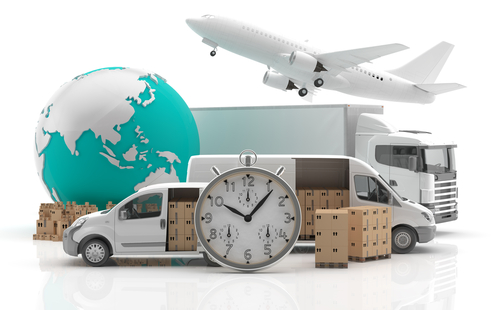 When you relocate internationally, immersing yourself in the new culture is essential. You’ll need to grasp the language, understand local customs, and establish a robust social network to thrive in your new home.
When you relocate internationally, immersing yourself in the new culture is essential. You’ll need to grasp the language, understand local customs, and establish a robust social network to thrive in your new home.
 Upon arriving in your new country, setting up your new home is critical for a comfortable start. From securing utility services to establishing tech and connectivity, these steps are the backbone of daily life in your new environment.
Upon arriving in your new country, setting up your new home is critical for a comfortable start. From securing utility services to establishing tech and connectivity, these steps are the backbone of daily life in your new environment.
Key Takeaways
- Efficient disposal of items is crucial for a streamlined move.
- Preparation involves logistical, legal, and cultural considerations.
- Settling abroad encompasses finding a home, career, and adapting to new surroundings.
Preparing for an International Move
When you decide to move abroad, it’s critical to focus on the meticulous planning of your documentation, finances, and packing strategies. This targeted preparation will alleviate much of the stress commonly associated with international relocation.Documentation and Visas
Before embarking on your international move, ensure you have a valid passport and the proper visas. Research your destination’s visa requirements early, as processing times can vary significantly. Begin by compiling essential documents such as birth certificates, marriage certificates, and school records. If you plan to work, secure any necessary work permits. Apply for a visa as soon as you’re able, to avoid any delays related to bureaucratic processing times.Financial Planning
An international move necessitates thorough financial planning. Create a detailed budget that includes moving costs, cost of living adjustments, and potential income changes. Investigate tax laws of your new country and understand your obligations, especially if you maintain bank accounts or assets in your home country. Don’t forget to consider currency rates; fluctuations can impact your financial planning significantly. Open a bank account in your new country and, if necessary, secure a loan or additional financial support to ensure a smooth transition.Practical Tips for Packing
Packing for an international move is different from a local one. Create a moving abroad checklist to keep track of items you’ll pack and move with you. Consider whether it’s more feasible to sell or store bulky items like furniture. Use sturdy boxes and suitcases for your belongings, and label everything clearly. Don’t overpack; prioritize household goods that are essential or hold sentimental value. Remember, the cost of shipping heavy items can be high, so it may be more economical to purchase some items upon arrival in your new country.Finding Accommodation Abroad
When moving to a new country, deciding where you’ll live is a crucial step that impacts your overall experience. It’s important to weigh the benefits of renting versus buying, choose a location that aligns with your lifestyle, and consider educational facilities if you have children.Renting vs. Buying
Renting is often the most practical option when you first move abroad. It offers flexibility and the opportunity to become familiar with your new environment without the long-term commitment of a mortgage. Websites like Go Overseas highlight the importance of researching your destination to understand the cost of living and rental markets. In contrast, buying a house may be preferable if you’re planning a permanent move or are looking for a long-term investment. Keep in mind that buying property often involves a more complex legal process, including understanding the local property laws, which can significantly differ from those in your home country.Location and Lifestyle
Your choice of location should reflect your lifestyle preferences and daily needs. Urban areas usually offer more job opportunities, entertainment options, and a faster pace of life, while rural areas might be appealing for their tranquility and scenic beauty. Living abroad means immersing yourself in a new culture and climate, so consider factors like local weather patterns or regional cultural practices when selecting your location. For guidance on choosing the right location and negotiating lease agreements, resources like Bucket List Bri can provide valuable insights into the nuances of renting in a foreign country.Schools and Education
If you’re moving with children or plan to study abroad, the availability and quality of education are paramount. Research to identify the best international or local schools that cater to your child’s educational needs, as highlighted on Transitions Abroad. For personal study, proximity to educational institutions might dictate where to live. Academic programs can vary greatly from one country to another, so ensure the school or university you choose is reputable and offers the qualifications or experiences you’re seeking.Managing Health Care and Insurance
 Before packing your bags for a new country, understanding how to navigate health insurance and health care should be a top priority. Ensure you have proper immunizations, transfer medical records, and comprehend insurance policies to avoid stress down the line.
Before packing your bags for a new country, understanding how to navigate health insurance and health care should be a top priority. Ensure you have proper immunizations, transfer medical records, and comprehend insurance policies to avoid stress down the line.
Insurance Policies
When moving internationally, the first step is to review and select a health insurance policy that covers you in your destination country. Consider whether you need local or international insurance – with the latter typically offering broader coverage but at a higher cost. For example, local plans may restrict coverage to within the country and have lower coverage limits, while international plans can start with a coverage limit starting at US$1,000,000 and include worldwide coverage, sometimes excluding the USA due to high medical costs. Tip:- Verify the extent of any geographic restrictions.
- Check the direct billing agreements to facilitate smoother transactions.
Finding Healthcare Options
After securing insurance, you’ll need to find trustworthy healthcare providers. Do some preliminary research to identify clinics and hospitals that have a good reputation among expatriates. In addition, networking with other expats can provide first-hand recommendations for healthcare services. Major hospitals often offer higher standards of care and may provide services in English or other foreign languages, which can ease the transition. Quick Checklist:- Research online for recommended healthcare providers.
- Join expat forums or groups for personal experiences and advice.
Understanding the Health Care System
Every country’s health care system operates differently. It’s vital to understand how the system works, from making appointments to seeking emergency care. Some countries may require registration with a local health authority or choosing a primary care physician before you can access services. Familiarize yourself with the process of referrals for specialists and the standard protocol for emergencies – this can vastly differ from what you’re accustomed to. Remember:- Healthcare systems vary; know the procedure for consultations and emergencies.
- Understand your rights as an immigrant regarding health services in the new country.
Navigating Legal and Regulatory Systems
When you decide to move to another country, understanding the complexities of visa procedures and the significance of local laws is critical. These factors will shape your experience, ensuring that you can live, work, and thrive in your new environment legally and without unnecessary complications.Immigration and Residency
Visa and Work Permit: Securing a proper visa or work permit is fundamental before you start planning your relocation. The visa process usually starts with determining the type of visa you need, which is contingent on the purpose of your stay – be it for work, study, or family reasons. You’ll often need a visa sponsor, usually your employer or a family member, to support your application. Applications require extensive documentation, so prepare to gather items such as passport-sized photos, proof of financial means, health insurance, and more. Permanent Residency: Gaining permanent residency is a process that can vary widely from country to country. It often necessitates an extended period of continuous legal stay, a clean criminal record, and a solid understanding of the host country’s culture and language. Working with an immigration lawyer may help to navigate the complexities and ensure all your paperwork is filed correctly.Abiding by Local Laws
Legal Requirements: Once you’ve arrived, it’s imperative to abide by the myriad of laws that govern your new home. This includes registering with local authorities to obtain a social security card if applicable, understanding tax obligations, and adhering to the specific legal standards that apply to foreigners. Cultural Integration: Respecting and understanding the host country’s culture plays a substantial role in your legal and social integration. Ensuring practices such as driving protocols, public behavior, and adherence to local customs will help you avoid misunderstandings that could have legal ramifications. By being proactive about your legal status and informed about your responsibilities under local law, you foster a more smooth and successful transition to living abroad.Adapting to the New Culture
 When you relocate internationally, immersing yourself in the new culture is essential. You’ll need to grasp the language, understand local customs, and establish a robust social network to thrive in your new home.
When you relocate internationally, immersing yourself in the new culture is essential. You’ll need to grasp the language, understand local customs, and establish a robust social network to thrive in your new home.
Language and Communication
Mastering the new language is your gateway to a successful life abroad. Consider enrolling in language classes or using digital tools to enhance your proficiency. When you start speaking even basic phrases, the locals will appreciate your effort, which can lead to stronger social connections. There are often services available to assist you in this aspect, ranging from formal education to informal language exchange meetups.Local Customs and Etiquette
It’s important to respect and adapt to local customs and etiquette in order to form meaningful connections and avoid misunderstandings. Simple gestures, like greetings and thank-yous, can vary greatly between cultures. Researching these social practices beforehand can be beneficial. For example, some cultures value punctuality while others may have a more relaxed approach to time. You can usually find plenty of resources online that provide contact links to expatriate groups and forums where you can ask questions and learn from others’ experiences.Building a Social Network
Creating a social network in a new country might seem daunting at first, but it’s crucial for feeling at home. Start with expat communities, as they can provide support and friendship to newcomers. Expats can often share insights on the nuances of culture shock and provide a soft landing into the new environment. Don’t shy away from local events and social gatherings either. These are excellent opportunities to make friends and practice the language. Additionally, consider if the country offers digital nomad visas which might also provide structured opportunities for you to make social connections with like-minded individuals.Transportation and Logistics
When moving to another country, managing your possessions and planning how to get around upon arrival are two cornerstones that determine the smoothness of your transition. You’ll need to organize the shipping of your belongings and familiarize yourself with the local transportation.Shipping and Moving Services
Choosing the right international movers is essential for the safe and prompt delivery of your furniture and belongings. The costs are influenced by the volume and weight of the items you’re shipping. For instance, air cargo rates are charged by the kilogram, so heavier home contents mean higher expenses. If you’re moving approximately 2,000 lbs., air freight costs can exceed $5,500. Overseas shipping might also entail additional customs fees and taxes, with special precautions required for items like antiques or pianos that could significantly drive up the price. To save on your budget, consider self-packing, which can reduce the cost by about 10%. Remember, the right moving company will offer a range of services, from simple transportation to complete packing and furniture assembly, catering to your specific needs.Vehicles and Public Transport
Upon your arrival, understanding your new country’s transportation framework is vital. Will you import your car or purchase one locally? Importing a vehicle often involves considerable freight charges, compliance with local regulations, and assorted paperwork. Navigating these logistics requires attention to detail, so ensure all forms are thoroughly reviewed and correctly filled out. Meanwhile, familiarize yourself with public transport options as they are typically an affordable and efficient way to commute. Research whether you need to apply for any specific passes or if there are eligibility requirements for discounted fares. Adaptation to local transport is an integral part of settling into a new place, and familiarizing yourself with this system early on will ease your moving abroad experience.Setting Up Your New Home
 Upon arriving in your new country, setting up your new home is critical for a comfortable start. From securing utility services to establishing tech and connectivity, these steps are the backbone of daily life in your new environment.
Upon arriving in your new country, setting up your new home is critical for a comfortable start. From securing utility services to establishing tech and connectivity, these steps are the backbone of daily life in your new environment.
Utilities and Services
When it comes to utilities and services for your house, it is important to get everything up and running as soon as possible. Contact local providers to set up electricity, water, gas, and waste disposal services. Be sure to have all necessary insurance policies organized and in place. These include homeowners or renters insurance, which often require a local address.- Setting Up Utilities:
- Electricity: Find your local provider and provide your address and move-in date.
- Water: Schedule for service to start the day you move in.
- Gas: If applicable, arrange for installation or service continuation.
- Waste Disposal: Learn the pickup schedule and recycling regulations.
Tech and Connectivity
Establishing tech and communication services in your new home is essential to stay connected. Setting up an internet connection is one of the first things you should do.- Internet: Research local internet service providers and compare their plans. Consider the speed, data limits, and contract lengths to find a plan that suits your needs.
- Tech Essentials: Ensure your home’s Wi-Fi network is strong and reliable. If you work from home or rely on the internet for streaming and communication, this is especially crucial. Look into Wi-Fi extenders or mesh systems if needed.
Working and Career Abroad
When considering a move overseas, securing your financial stability through employment or entrepreneurship is critical. You’ll need to consider work permits or business regulations that apply to your situation. Let’s explore how you can find employment or start your own venture in a new country.Finding Employment
To work in another country, you typically need a work visa. Begin by researching job opportunities that match your skills and apply for a visa in line with the job requirements. Utilize international job boards to find openings and be sure to understand the role and industry demands. It’s often easier to apply for a visa when you have a confirmed job offer, as your employer may also assist with the visa process.- Research: Understand the job market and demand for your skills.
- Work Permit: Confirm whether you require a permit and how to obtain it.
- Apply: Submit applications to prospective employers.
- STEP: Enroll in the Smart Traveler Enrollment Program (STEP) to receive assistance from the U.S. Embassy.
- Networking: Build connections that can help you secure employment.
Starting a Business or Freelancing
As a business owner or freelancer, you’ll need to comply with business regulations of the new country. You might consider a digital nomad visa if available, which is designed for those who work independently online. Becoming licensed and understanding the financial implications of starting a business abroad is crucial.- Market Research: Study local business dynamics.
- Regulations: Get familiar with legal requirements, including visas and tax laws.
- Business Plan: Develop a plan that outlines your business or freelance work.
- Financial Planning: Ensure you have the funds to support your venture.
- Networking: Use connections to gain local insights and customers.
Frequently Asked Questions
When considering a move to another country, having the right information at hand is crucial. These frequently asked questions will equip you with the knowledge to navigate the complexities of international relocation.What steps should one take to move to another country permanently?
You should start by researching your desired country’s immigration policies to understand the types of visas available and the application process. It’s essential to prepare a moving abroad checklist to organize tasks such as obtaining legal documents, setting up finances, and arranging housing. A structured plan should be followed, starting at least 90 days before the move.How much savings should one have before relocating to another country?
The amount varies widely depending on your destination, lifestyle, and whether you have a job waiting. However, it is advisable to have enough to cover living expenses for at least 6 months. This should include costs for housing, food, transportation, and unexpected expenses. Save more to account for immigration fees, travel costs, and setting up your new home.What are the challenges one might face when moving to a new country alone?
Moving abroad alone can be an overwhelming experience facing language barriers, cultural differences, and social isolation. Difficulty finding accommodation, navigating the healthcare system, and handling the legal aspects of immigration are common hurdles. Being far from family and friends can also pose emotional challenges.What are the legal requirements for an American moving to another country?
Legal requirements vary by destination but typically include obtaining the correct visa or residency permit. You’ll also need to consider tax implications, like the existence of a double taxation treaty with the US. Some countries may require proof of income, health insurance, and a clean criminal record.Which countries are considered the easiest for relocation from the USA?
Countries like Mexico, Canada, and Portugal tend to be among the easiest for Americans due to favorable immigration policies, proximity to the US, and established expat communities. However, ‘easy’ is subjective and depends on your personal circumstances, including reasons for moving and financial stability.What are some pros and cons of relocating to a foreign country?
Pros include the opportunity for personal growth, exposure to new cultures, and potential cost of living benefits. Conversely, cons consist of the complexity of moving logistics, potential language barriers, and the emotional impact of leaving familiar surroundings. Weighing these carefully is essential to making an informed decision.RECENT BLOGS
Our Reviews
Glenda Lanier Prowell
1721758635
I have ordered an 11 yard dumpster to be delivered to my house.Lonier was extremely helpful and answered all my questions. The rate was very reasonable.
Cedric Smikle
1721660395
Amber was extremely professional and courteous. She answered all of my questions and even some that I didn’t know I needed to ask.
Cait Kaider
1721243051
I highly recommend Waste Removal USA for their responsiveness and how the staff work hard to provide exceptional customer service. They have done well by us and our clients. Thank you!
Easom Family
1721223306
Louiner Pierre-Louis Is awesome! Did a great job. Will definitely be using this same company for all my dumpster needs because of his awesome customer service! Thank you!!!
tabitha Vazquez
1720539988
Wonderful and fast customer service!
LATEST BLOGS
